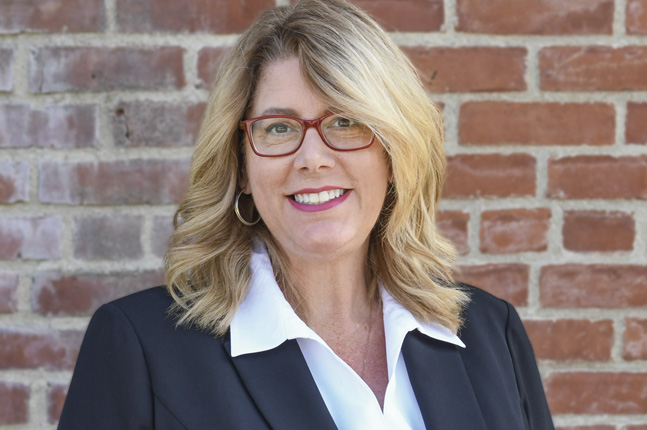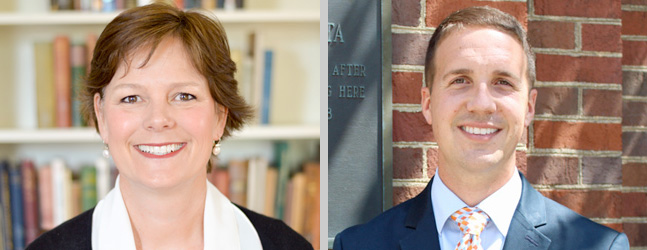In the Winter 2020 edition of The Scroll, Phi Delta Theta featured the People of Phi Delt 2030, a collection of stories that personify the strategic initiatives of the Fraternity’s new strategic plan.

Engagement
Written by Beth Bell
What would you do if your high school senior son went to his college’s orientation weekend, and returned from that weekend having pledged a fraternity?
Wabash College is a small, private, men’s liberal arts college in Indiana. More than half of its students live in the one of the ten fraternity houses. Our son attended their open houses with a new friend, Felipe, and the two decided that Phi Delta Theta looked like a good group of guys.
I am a member of Alpha Omicron Pi (DePauw) and cherish and cherish my sisters. But neither my husband nor our daughters had affiliated with any group, so we were a little shocked that he’d made such a big decision without ever really talking about fraternities before. We quickly realized that he’d made a good choice.
During his time on campus, I was invited to serve on a newly formed Wabash Parent Advisory Council and we performed many useful tasks to assist Wabash students during my tenure. I also learned that Phi Delt parents are very supportive—from the fall tailgates to the spring Mothers and Brothers luncheon where moms bring baskets to auction and the money raised is used to purchase something useful for the chapter house. Over the years it’s become a family event with dads and siblings joining in the fun. Connections with other parents have forged friendships that go beyond our sons and have lasted long after graduation.
Collin benefited from mentorship from many of the chapter’s alumni, especially Hugh Vandivier, ’91, Jim Dyer, ’83, and Rob Rudicel, ’92. They set a wonderful example for these young men. As a chapter officer, Collin had great accountability serving on executive board and dealing with the everyday concerns of leading a chapter of forty guys. Sometimes, as you can imagine, it was not always the easy road. Starting as philanthropy chairman, then moving to scholarship chairman, recruitment chairman, and finally ending his time in the house as chapter president, Phi Delt gave him the opportunity to develop both leadership and diplomacy skills. He continues to be involved by serving on the Chapter Advisory Board.
Whether for better or worse, parents are more involved than ever in the lives of their children. But there’s a fine line between showing an interest and smothering. We need to communicate with and empower parents to have a role but also feel comfortable stepping away and trusting that their sons are part of an organization that has their best interests at heart. I see the Fraternity’s newly-developed Family Council as a liaison between the chapters and their families, a sounding board for questions and concerns, and resource for families and their students. We have seen firsthand the benefits of Greek affiliation and are grateful he chose so well.

Written by Kelly Derickson, Editor of The Scroll & Engagement Coordinator and Steve Good, Senior Vice President of Growth, Engagement & Philanthropy
Ongoing goals of any great organization often include a well-executed communications plan, using a variety of communication methods to reach its many constituents. For Phi Delta Theta, internal constituents include alumni, undergraduates, and families. In addition to communicating with internal constituents, it’s vital for the Fraternity to communicate outward to university officials, fraternity and sorority life advisers, fraternal peers, and the national media outlets who play an integral role in what is being said about our industry.
Phi Delt 2030 includes an emphasis on improving the Phi Delta Theta brand position and its various communications platforms as well as tasking its volunteers, alumni, undergraduates, and families with helping craft various messages. Hearing from voices outside of General Headquarters advocating for the value of Greek life and Phi Delta Theta is often more impactful than hearing from a staff member.
Some of the plan’s initiatives for increased engagement include the development of advisory councils from both the family and campus perspective. These councils represent additional advisers or experts to various programming decisions, and will to serve as sounding boards and advocates to the Fraternity’s greater communities. And in many cases, these non-Phi advisers can become integral members of Chapter Advisory Boards or House Corporations.
Beth Bell’s story about being an advocate for her son at Wabash College on their Parent Advisory Committee, and her confidence that Phi Delta Theta is on the right track by creating a similar guiding group of input, represents one large step (of many) for Phi Delta Theta.


